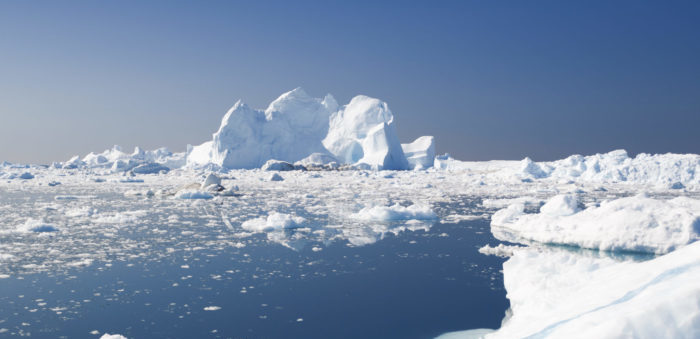Record low extents of Arctic sea ice over the past decade has led to increased human activities in the Arctic, and has heightened interest in, and concerns about, the region’s future, while focusing scientific and policy attention on links to global climate change. As the US has substantial interests in the Arctic, by virtue of Alaska, it issued a report providing an overview of Arctic-related issues for Congress, referring to the potential consequences for weather, access to mineral and biological resources in the Arctic, the economies and cultures of peoples in the region, and national security.
The five Arctic coastal states—the US, Canada, Russia, Norway, and Denmark (of which Greenland is a territory)—have made or are in the process of preparing submissions to the Commission on the Limits of the Continental Shelf regarding the outer limits of their extended continental shelves. The Russian submission includes the underwater Lomonosov Ridge, a feature that spans a considerable distance across the center of the Arctic Ocean.
The whole range of changes for US can be summarized into the following points:
- Changes to the Arctic brought about by warming temperatures will likely allow more exploration for oil, gas, and minerals.
- Warming that causes permafrost to melt could pose challenges to onshore exploration activities.
- Increased oil and gas exploration and tourism (cruise ships) in the Arctic increase the risk of pollution in the region.
- Cleaning up oil spills in ice-covered waters will be more difficult than in other areas, primarily because effective strategies for cleaning up oil spills in ice-covered waters have yet to be developed.
- Changes in the Arctic could affect threatened and endangered species, and could result in migration of fish stocks to new waters. Under the Endangered Species Act, the polar bear was listed as threatened on May 15, 2008. The US is currently meeting with other countries regarding the management of Arctic fish stocks.
- Two of the Coast Guard’s three polar icebreakers—Polar Star and Polar Sea—have exceeded their intended 30-year service lives, and Polar Sea is not operational. The USCG has initiated a project to build up to three new heavy polar icebreakers. On May 12, 2011, representatives from the member states of the Arctic Council signed an agreement on cooperation on search and rescue in the Arctic.
Although there is significant international cooperation on Arctic issues, the Arctic is increasingly being viewed by some observers as a potential emerging security issue. Some of the Arctic coastal states, particularly Russia, have announced an intention or taken actions to enhance their military presences in the high north. US military forces, particularly the Navy and Coast Guard, have begun to pay more attention to the region in their planning and operations.
Find out more in the following report:































































